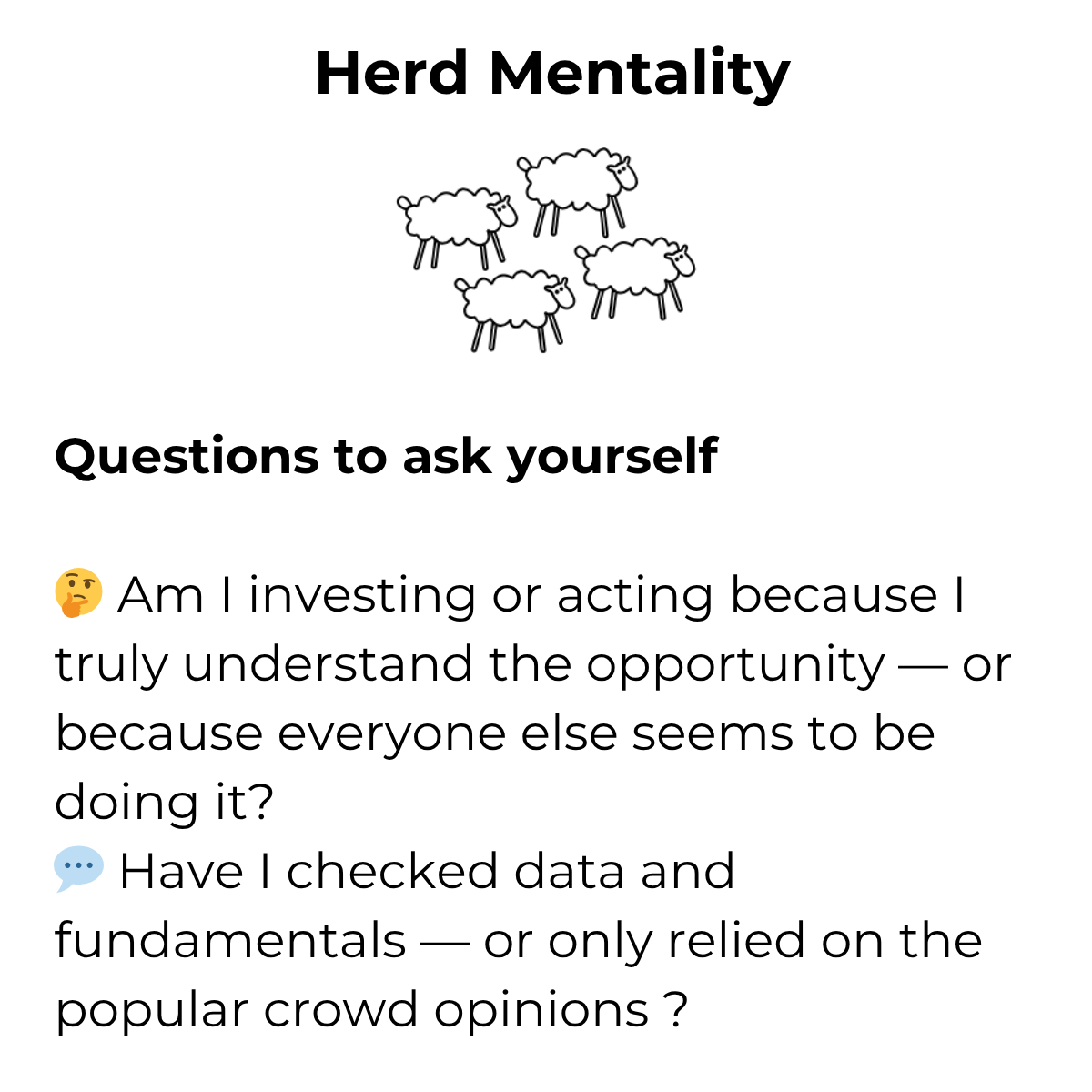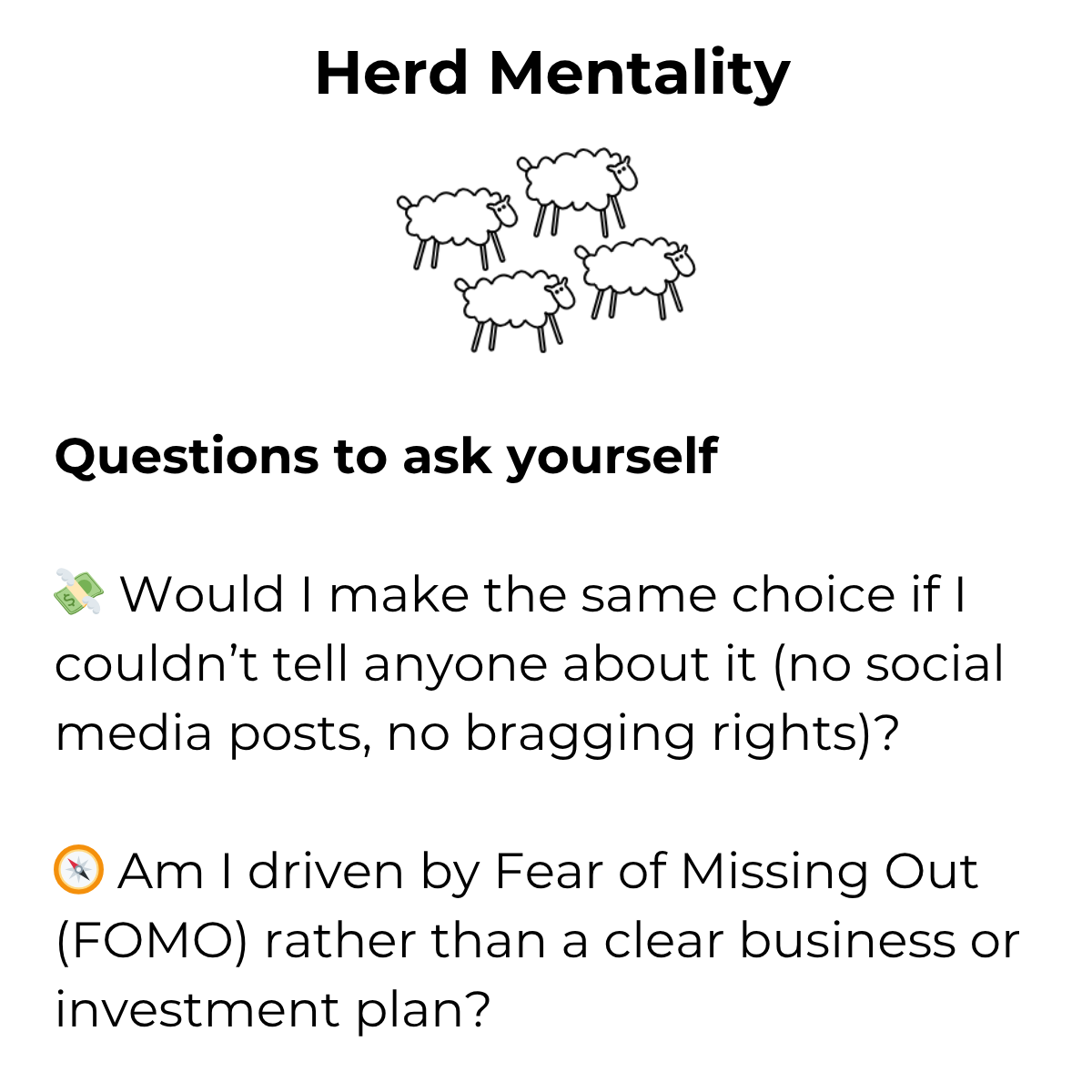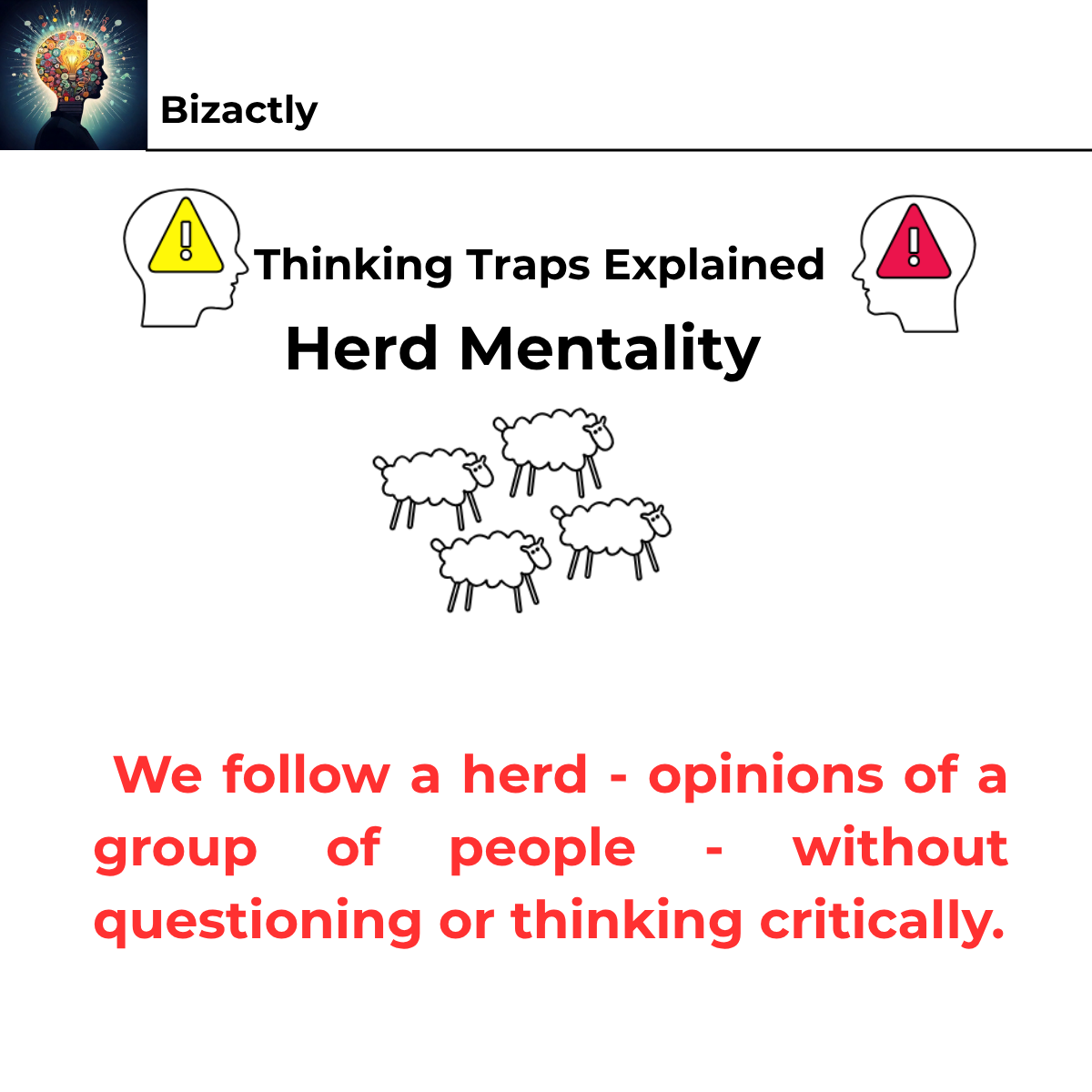
Being humans, we often fool ourselves, both in business and in our personal lives. If we are aware of thinking traps, we are less likely to fall into them.
One thinking trap is the "Herd Mentality".
🐑 Definition – Herd Mentality: We follow the opinions of a crowd, without critical thinking or anlysis. In business, this leads to market bubbles, fads, and investment manias driven more by emotion and imitation than fundamentals.
🌷 The Dutch Tulip Craze (1634–1637): Tulips became luxury items in the Netherlands. Prices skyrocketed as investors rushed in, believing others’ enthusiasm indicated lasting value. At its peak, a single tulip bulb sold for the price of a canal house in Amsterdam. When confidence fell, prices crashed almost overnight—ruining many investors.
💻 The Dot-Com Bubble (1995–2000): Investors poured money into any company with “.com” in its name. Analysts and media reinforced the optimism, ignoring lack of profits. The NASDAQ rose over 400% between 1995 and 2000 before crashing.
🏘️ U.S. Housing Bubble (2000–2008): Real estate was seen as “always rising.” Buyers, lenders, and investors copied each other, assuming perpetual growth. Defaults and foreclosures triggered the 2008 financial crisis.

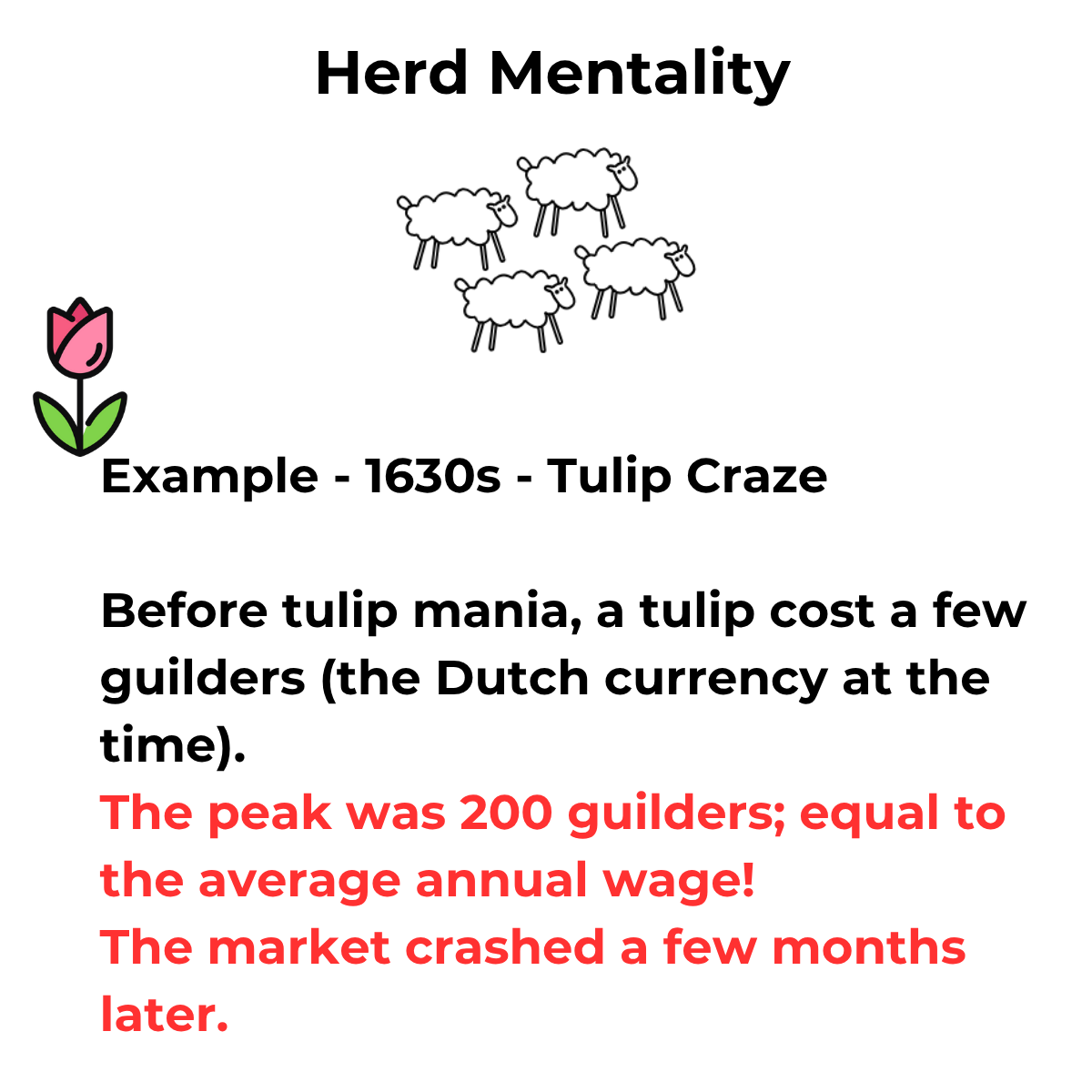
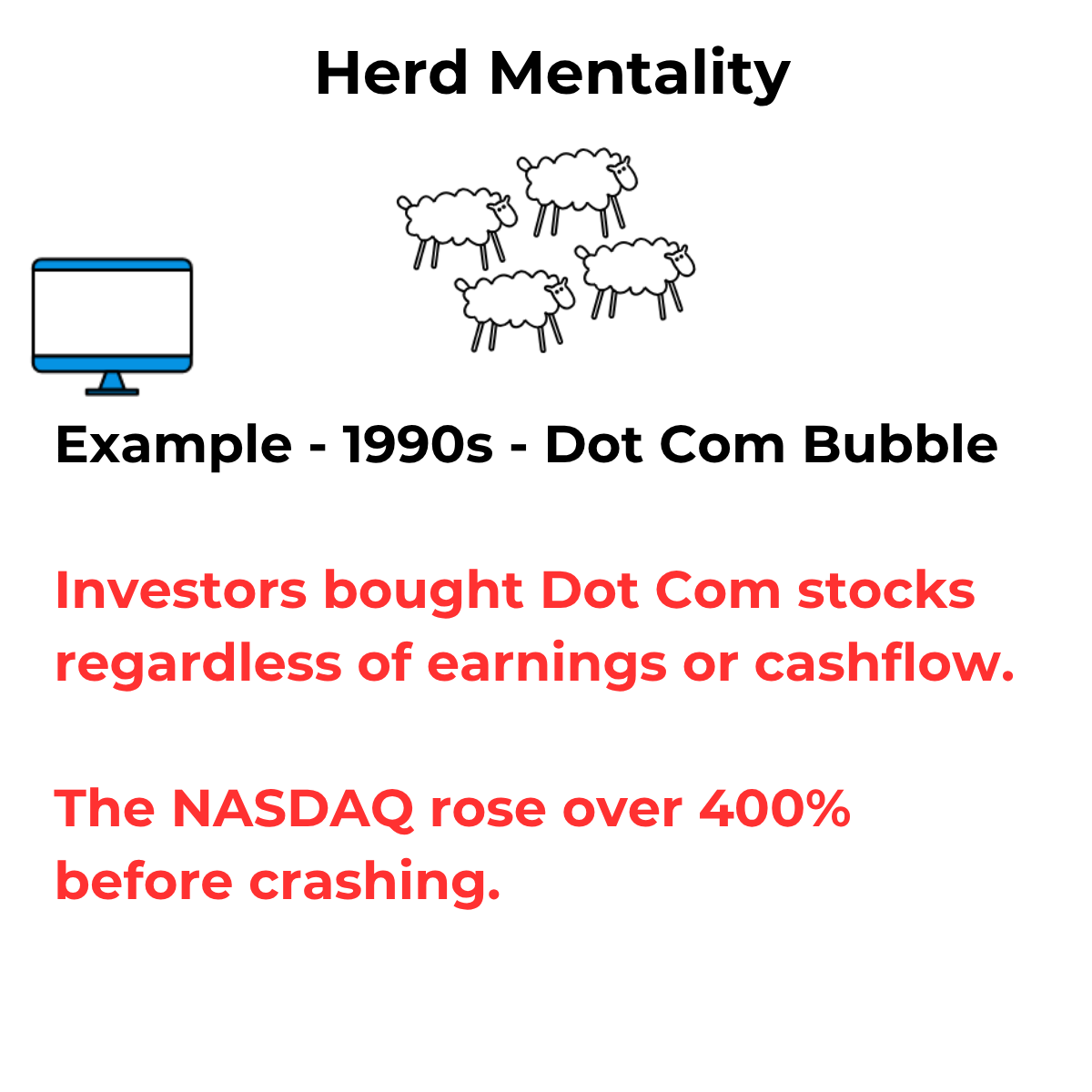
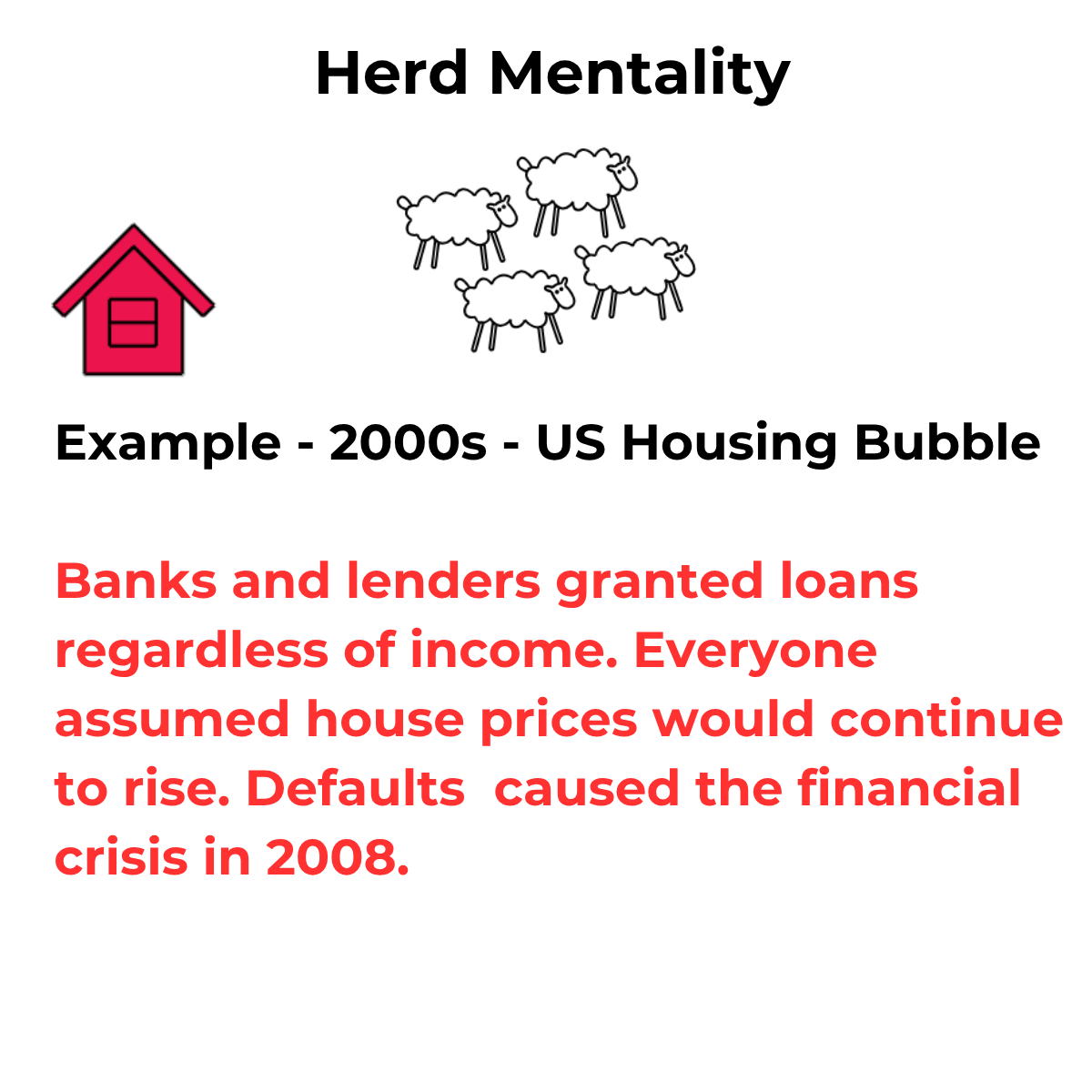
Common reasons we fall for the herd mentality:
⚠️ Common Herd Mentality Triggers in Business:
🔥 Fear of Missing Out (FOMO)
📣 Media amplification and hype
👥 Peer imitation and wanting to fit in
💸 Focus on short-term gains - greed for a quick buck
🙈 Lack of independent analysis and critical thinking
❓ Questions to Ask Yourself:
🤔 Am I investing or acting because I truly understand the opportunity — or because everyone else seems to be doing it?
Am I following expert analysis or just reacting to what’s popular on social media?
Have I checked data and fundamentals — or only the opinions that match the crowd’s enthusiasm?
Would I make the same choice if I couldn’t tell anyone about it (no social proof, no bragging rights)?
Am I driven by Fear of Missing Out (FOMO) rather than a clear business or investment plan?
Do I understand the risk of this decision — or am I assuming it’s safe because many others are doing it?
